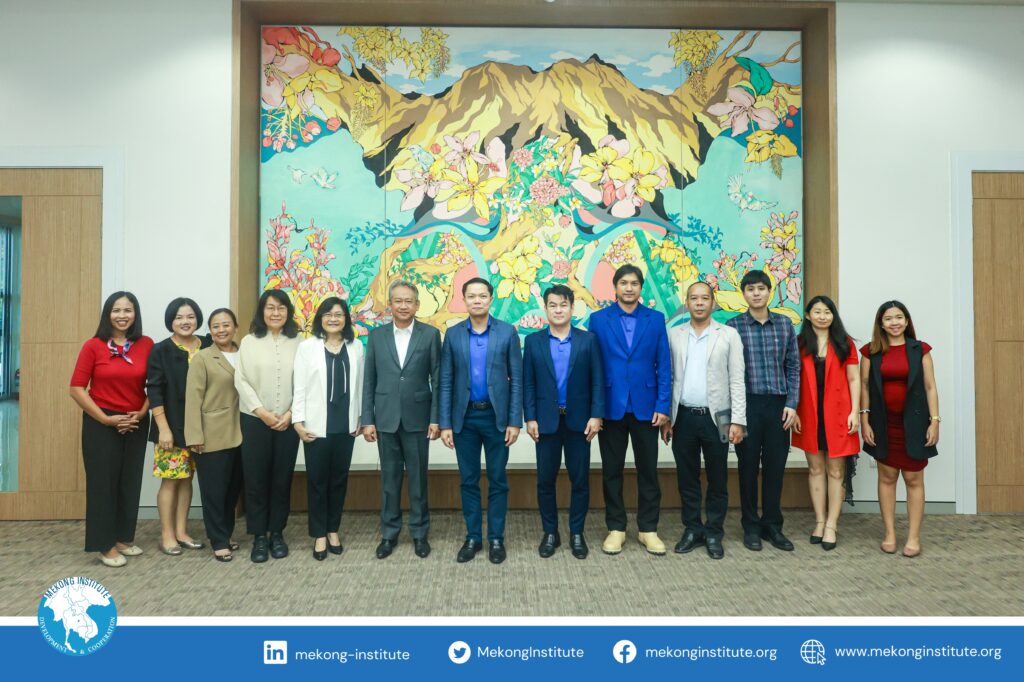July 5, 2024 – Mekong Institute (MI) welcomed Dr. Anoulak Kittihoun, CEO of the Mekong River Commission (MRC) Secretariat, and his team to its headquarters in Khon Kaen, Thailand. This visit marks a significant milestone in strengthening ties between MI and MRC, two key intergovernmental bodies dedicated to advancing sustainable development across the Mekong region.
The meeting explored various avenues of cooperation between MI and MRC, focusing on aligning efforts in ongoing initiatives. This strategic partnership seeks to leverage each organization strengths, ensuring complementarity in achieving shared developmental goals.
Key areas of collaboration discussed during the dialogue included adopting a nexus approach, focusing on the need for more coordinated and integrated management of the use of natural resources across sectors. Sustainable and active engagement with the private sector and industry was also highlighted as a critical consideration for integrated water management initiatives.
Additionally, discussions touched upon ongoing projects such as the Triangular Cooperation Project on Sustainable Development in the Lower Mekong River Basin based on the Water-Energy-Food Nexus or P-Link. Supported by the Ministry of Science and ICT of the Republic of Korea, the P-LINK project is a collaborative effort involving the UN Office for South-South Cooperation, MI, MRC Secretariat, and the Science and Technology Policy Institute.
The meeting also addressed MI’s capacity-building project with the Australian Government as another area for collaboration. Supported by Australia’s Department of Foreign Affairs and Trade (DFAT), this project aims to enhance MI’s support role for the Ayeyawady-Chao Phraya-Mekong Economic Cooperation Strategy (ACMECS) Interim Secretariat. The project includes facilitating learning exchanges and online knowledge-sharing sessions with the MRC.
“We are excited about the prospects of deeper collaboration with MRC”, remarked MI Executive Director Suriyan Vichitlekarn. “Our shared vision for sustainable development and our commitment to the Mekong region’s well-being make this partnership not only promising but essential.”
This visit underscores MI and MRC’s dedication to collaborative action, driving sustainable solutions to tackle complex regional challenges.








